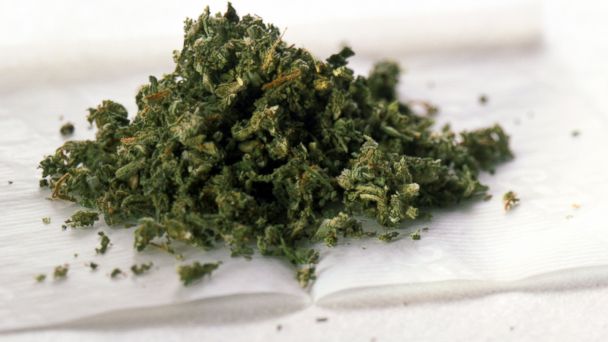Legal Cash-Only Pot Sellers Supermarkets for Crooks

Getty Images
They come in the middle of the night. Breaking through doors, heads and faces covered to hide from surveillance cameras. Sometimes, they bring guns.
Amid Colorado's booming legal recreational and medical marijuana trade, thieves are busting into shops and grow facilities looking for cash, sometimes running out with pot plants worth thousands of dollars.
Kristi Kelly, owner of GoodMeds Marijuana Dispensary, was hit three times by burglars taking advantage of an industry that is drowning in cash.
Related: Colorado pot buyers lining up for legalized sales.
In Denver alone, there have been 17 reported burglaries at marijuana grows, dispensaries or manufacturers since January first, according to numbers compiled by the Denver Police Department.
Part of what makes Kelly and thousands of legal marijuana business owners vulnerable is that they operate largely as cash-only companies, without the ability to open a bank account.
Kelly must pay her employees in cash that often smells like pot. She cannot use checks to pay taxes, or accept credit cards from customers. Banks keep shutting Kelly down because the US government still considers marijuana illegal, and banks must answer to federal regulators.
"In the last 18 months, I've lost six bank accounts," she told ABC News. "I feel very paranoid. I feel I'm always looking over my shoulder even if I have nothing of value on me."
Another company that wanted to remain anonymous showed ABC News how it paid taxes of $200,000 in cash.
Kelly recently turned her shop into a virtual fortress, complete with nine visible cameras - the others are hidden.
"I have complete control over who comes in and out," she said.
Kelly said she made an effort to not keep large amounts of cash in one place. Moving the money around is a potentially dangerous prospect.
"Our security protocols change on a weekly basis," Kelly said. "So if someone were to watch our patterns we wouldn't have any patterns because every week we're changing them. The times of day, the places, the locations, everything about the transfer of any of our valuable assets is taken into consideration."
Other marijuana companies have also turned to heavily armed private security for help.
Ted Daniels, president of Blue Line Protection Group, took ABC News on one of 1,000 runs his guards make every month. He hires former military and law enforcement people as guards.
Leonid Pavlushkin used to be a sniper in the Russian Special Forces and spent time as n the NYPD. Before heading out on a job for Blue Line, he strapped a Glock handgun to his thigh and loaded an M-4 assault rife, just in case.
On a recent trip to deliver marijuana to a medical dispensary, Pavlushkin drove while Daniels kept a close eye on their surroundings.
"We look for anything suspicious," Daniels told ABC News. "We look for any cars parked, any people sitting and watching."
"We do move around large amounts of cash," Daniels said. "We don't like to say how much our clients have in their store."
As Pavlushkin stood watch outside, armed escorts brought new supplies of weed in. Then, they unlocked the safe and removed the money, speeding off minutes later to a secure, secret vault.
Although the Justice Department recently issued new guidelines meant to reassure banks that they would not be prosecuted for doing business with the pot industry, banks ABC News spoke with were not convinced.
"[The guidance] only reinforces and reiterates that banks can be prosecuted for providing accounts to marijuana related businesses," said Don Childears, CEO of the Colorado Bankers Association.
"Bankers had expected the guidance to relieve them of the threat of prosecution should the open accounts for marijuana businesses, but the guidance does not do that. Instead, it reiterates reasons for prosecution and is simply a modified reporting system for banks to use. It imposes a heavy burden on them to know and control their customers' activities, and those of their customers. No bank can comply," Childears said in a statement.
Related: Feds let banks and pot sellers do business.
The marijuana industry said that real safety would only come when Congress changed banking laws.
A bill being considered in the House of Representatives would prohibit federal regulators from punishing banks who open accounts for legal marijuana businesses.
"We want to be able to put out cash in a bank account and have a piece of paper be good for that cash that we give to our employees or pay our taxes," said Michael Elliot, executive director of the Medical Marijuana Industry Group. "That very basic thing seems to be impossible to do."